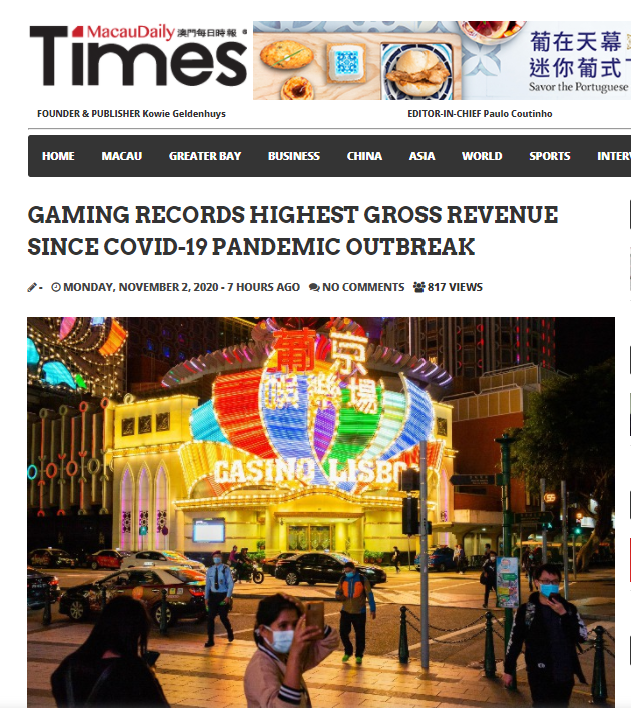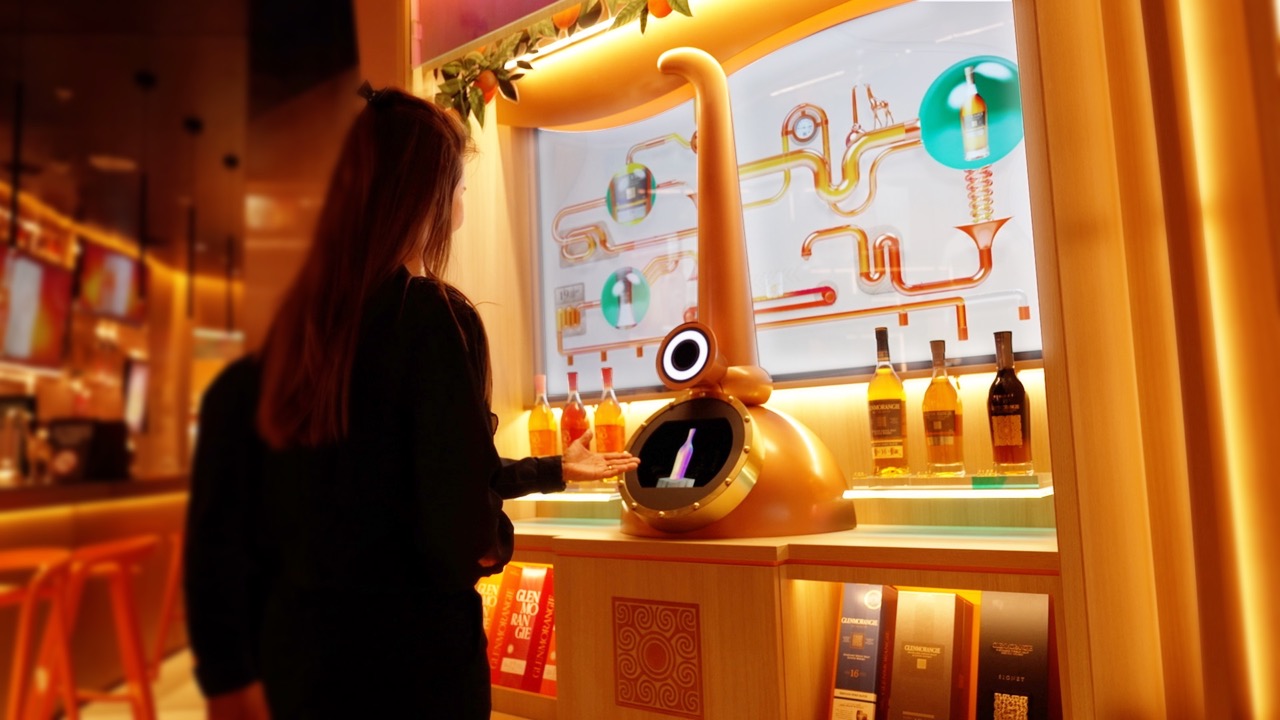CHINA (MACAU). Latest Macau Statistics and Census Service (DSEC) figures reveal that Mainland Chinese visitor numbers soared by 197.9% month-to-month to 131,000 in September. The improvement was driven by the resumption of exit endorsements for Mainland residents to travel to Macau.
However, that figure still represented a year-on-year decrease of -82.6%, suggesting that the full recovery of Macau’s tourism, gaming and shopping sectors is likely to be phased over months.
The improvement continued in October, manifested by a -72.5% year-on-year fall in gross gaming revenues in the month (a key indicator of tourism strength), according to Macau’s Gaming Inspection and Coordination Bureau. For the previous six months, those revenues had slumped by over -90% year-on-year. October’s numbers were +228.8% up on September’s.

As reported, visitor numbers and spending have been buoyed by the nationwide resumption of Macau’s Individual Visit Scheme (IVS) on 23 September. The IVS was suspended in late January as the COVID-19 outbreak escalated in China, leading to a collapse in visitors to Macau.
Hainan and Macau shape as the only bright spots in the Asian travel retail channel over coming months, other than Jeju in South Korea (where ‘domestic duty free’ a la Hainan remains relatively robust).

Chinese travel analyst Tracking Traffic, publishing through Smartkarma, noted that international activity by Chinese travellers was “still comatose”.
It commented: “Until popular regional destinations besides Macau begin significantly relaxing inbound travel restrictions, it’s difficult to imagine outbound Chinese tourism activity recovering. And the experience of Macau – so far, at least – suggests that returning to pre-COVID-19 levels of travel activity won’t happen instantaneously, but will instead play out over several months (Macau began easing in mid-August).”


While data from China’s Ministry of Transport still shows a -28% year-on-year decline in domestic air passenger-kms, September data from the three large state-owned airlines actually increased +1.7% year-on-year, Tracking Traffic said. This marked the first increase in the metric since December 2019 (the three airlines RPKs also increased slightly).
The report also noted encouraging evidence of normalisation in China’s tourism sector in that domestic air activity is once again growing faster than combined rail and highway travel.
The chart below shows the year-on-year growth rates of Ministry of Transport-reported domestic air passenger-kms for air travel minus the growth of combined rail and highway travel. “Historically, demand for air travel has grown faster than demand for the slower, cheaper ground modes. That reversed in the early months of the pandemic, but has begun to recover,” the analyst said.
However, air’s ‘outperformance’ versus the other two travel modes remains weak compared to its historical advantage, at just +2.1% in September.

Shorter domestic air trips favoured
Although the data is still incomplete, it appears Chinese travellers are currently less inclined to take long trips by air than they were before the pandemic, Tracking Traffic said. That also supports the widely held view that short-haul, intra-Asia travel will be the first sector of the Chinese outbound market to revive.
“We believe Chinese tourism and travel demand remains depressed,” the report concluded. “Conditions for outbound Chinese travel cannot improve unless or until there is wide relaxation of restrictions around the region. This could be months away, and progress is likely to be uneven.
“Although domestic travel conditions have improved gradually since early Spring, and by some metrics domestic activity is beginning to ‘normalise’, we see signs that demand remains muted.”













